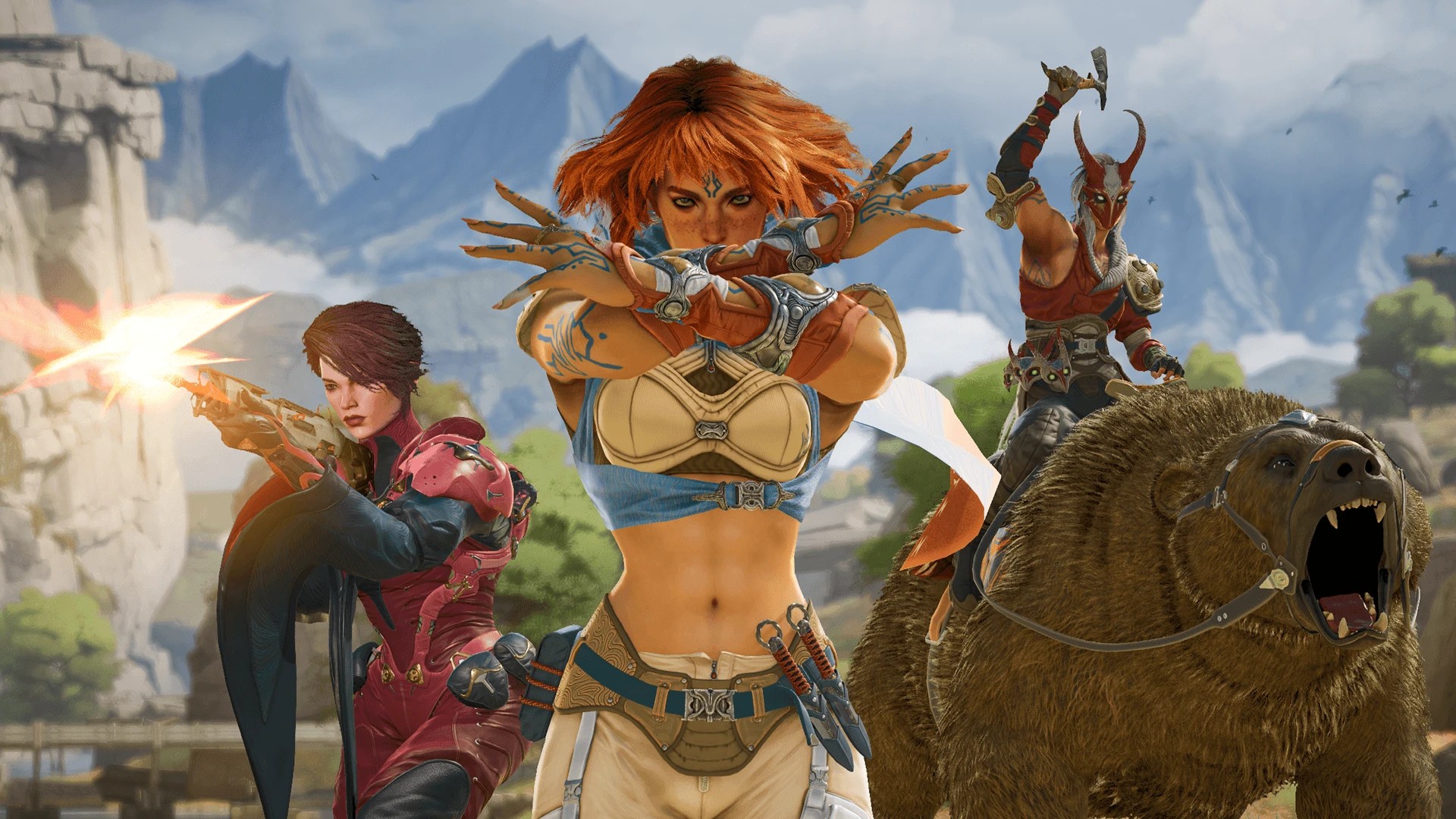5 Hours With Assassin's Creed Odyssey: Big, Fun and Familiar
If the introductory chapter of Assassin's Creed Odyssey is anything to go by, it's going to be another historical adventure to remember.
The year is 431 B.C.E. Socrates has begun his tenure as Antiquity's resident philosophical gadfly. Athens and Sparta are ready to go to war with each other. And a Cephalonian mercenary is about to make his or her mark on the ancient world.
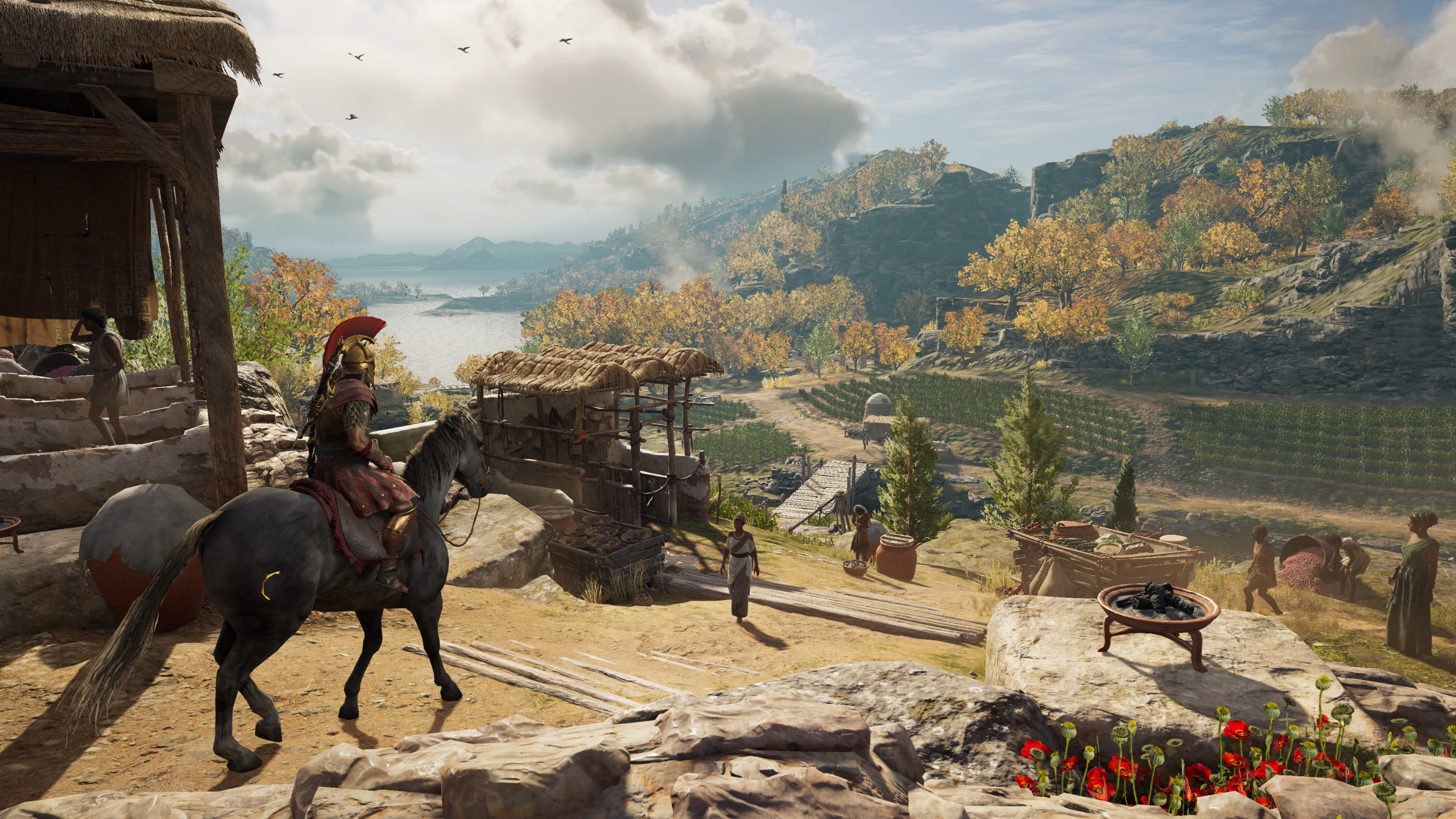
In Assassin's Creed Odyssey, you'll explore the cities, countryside and wine-dark seas of ancient Greece, all while discovering secrets about Earth's mysterious First Civilization. The game will be out in less than a month, and if the introductory chapter is anything to go by, this title is going to be another historical adventure to remember.
MORE: Every Assassin's Creed Game, Ranked
I attended an extended press demo for Assassin's Creed Odyssey in New York City on Sept. 7. After a briefing from the game's creative director, I had just shy of 5 hours to explore the world, complete missions and advance the story as much as I could. This took me from Cephalonia to Megara, on the trail of a deadly Spartan general known as the Wolf. I faced enemies in open combat, sneaked through deadly fortresses, took to the seas in a trireme and even tried to woo a descendant of Odysseus himself. There is a lot to do in Assassin's Creed Odyssey, and so far, almost all of it is fun and well-thought-out.
The demo wasn't a gameplay slice intended for a convention floor; rather, it was the first 8 hours or so of the game, complete with every side quest, optional area, usable item and gameplay feature that will be in the final game. As such, I didn't see every single thing this title had to offer. But what I did see convinced me that the game will offer another big, gorgeous slice of the ancient world, but with more-refined gameplay than in Assassin's Creed Origins.
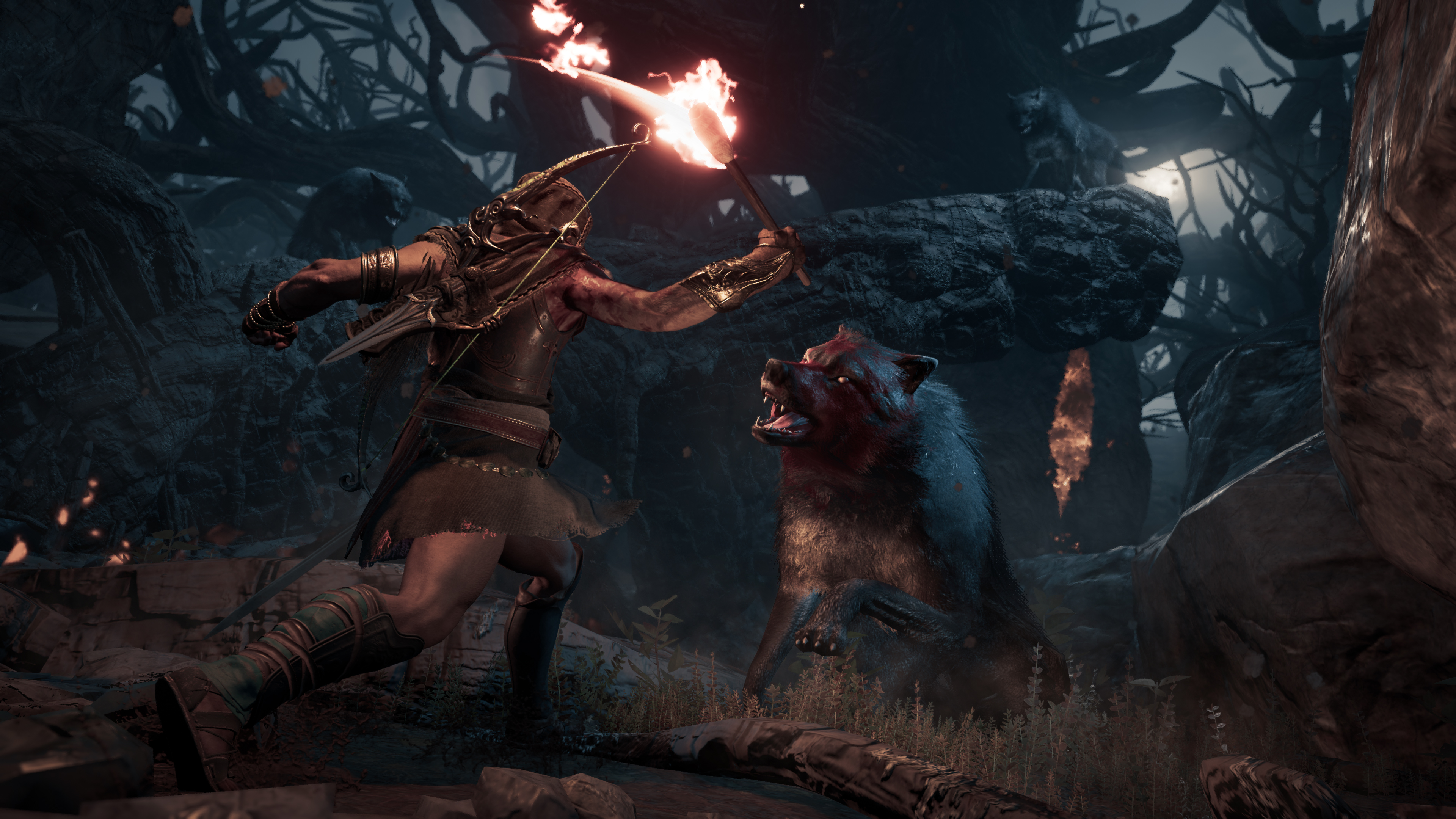
Getting started
Assassin's Creed Odyssey begins in 480 B.C.E., letting you briefly take control of King Leonidas I himself during the Greco-Persian Wars. (The battle portrayed in the game wasn't explicitly the last stand of the 300 Spartans at Thermopylae, but I certainly read it that way.) Right away, I could tell that the combat had seen some refinements since Assassin's Creed Origins — but not too many.
King Leonidas could attack the Persian soldiers with light or heavy spear moves or dodge away from their attacks with varying degrees of rapidity. The first major change is that Leonidas also had access to a variety of abilities in a quick-access menu, including a Bull Rush, which let him dash across the battlefield, and a Spartan Kick, which — well, if you've seen the film300, you know what that one does.
Get instant access to breaking news, the hottest reviews, great deals and helpful tips.
Once that section wrapped up, the game asked me to choose one of two available protagonists: Alexios or Kassandra. Both are Cephalonian mercenaries, descended from King Leonidas, and their family background has some bearing on the overall story. Otherwise, though, choosing one or the other is just about the sex of the character you want to play; neither one has exclusive story content.
I picked Alexios and set off to explore Cephalonia, where the game begins. Alexios is a "misthios" — roughly translated as "hired man," but usually, characters use the term to mean "mercenary." As the game begins, Phoibe, a surrogate little sister to Alexios, informs him that Markos, their mentor, has decided to invest in a vineyard. This is bad news on two counts — first, because Markos has no idea how to run a vineyard and second, because Markos is already deep in a debt to a crime lord known as the Cyclops.
To find Markos' vineyard, I first had to explore my surroundings. This is because Assassin's Creed Odyssey introduces an optional new feature known as Exploration Mode. Rather than simply pointing you toward objectives via waypoints, characters now explain roughly where to find plot objectives and then leave you on your own.
Phoibe told me that Markos' vineyard was near the foot of the mountains to the north, but without a map icon to guide me, I had to follow the road and keep my eyes peeled. Along the way, I fought off a bandit ambush and got lost in the woods, where I was chased by wolves. It's an interesting, organic experience, which led me to find a lot of the game's optional side content along the way. But if you'd prefer to stick with the traditional map markers, you can do that, too.
Unraveling Markos' initial quest line took about 2 hours, and it ticked all of the usual Assassin's Creed boxes. I had to sneak through an enemy stronghold, picking off foes as I went. I had to rescue Phoibe, who'd been kidnapped by the Cyclops' men. I eventually went toe to toe with the Cyclops himself in open combat, ending the crime lord's reign of terror (and, more importantly, erasing Markos' debt). The new combat abilities, like Bull Rush, Spartan Kick and Shield Breaker (it's what it sounds like), helped give battles a little more depth. But otherwise, it's all very similar to Origins, and it all holds up.
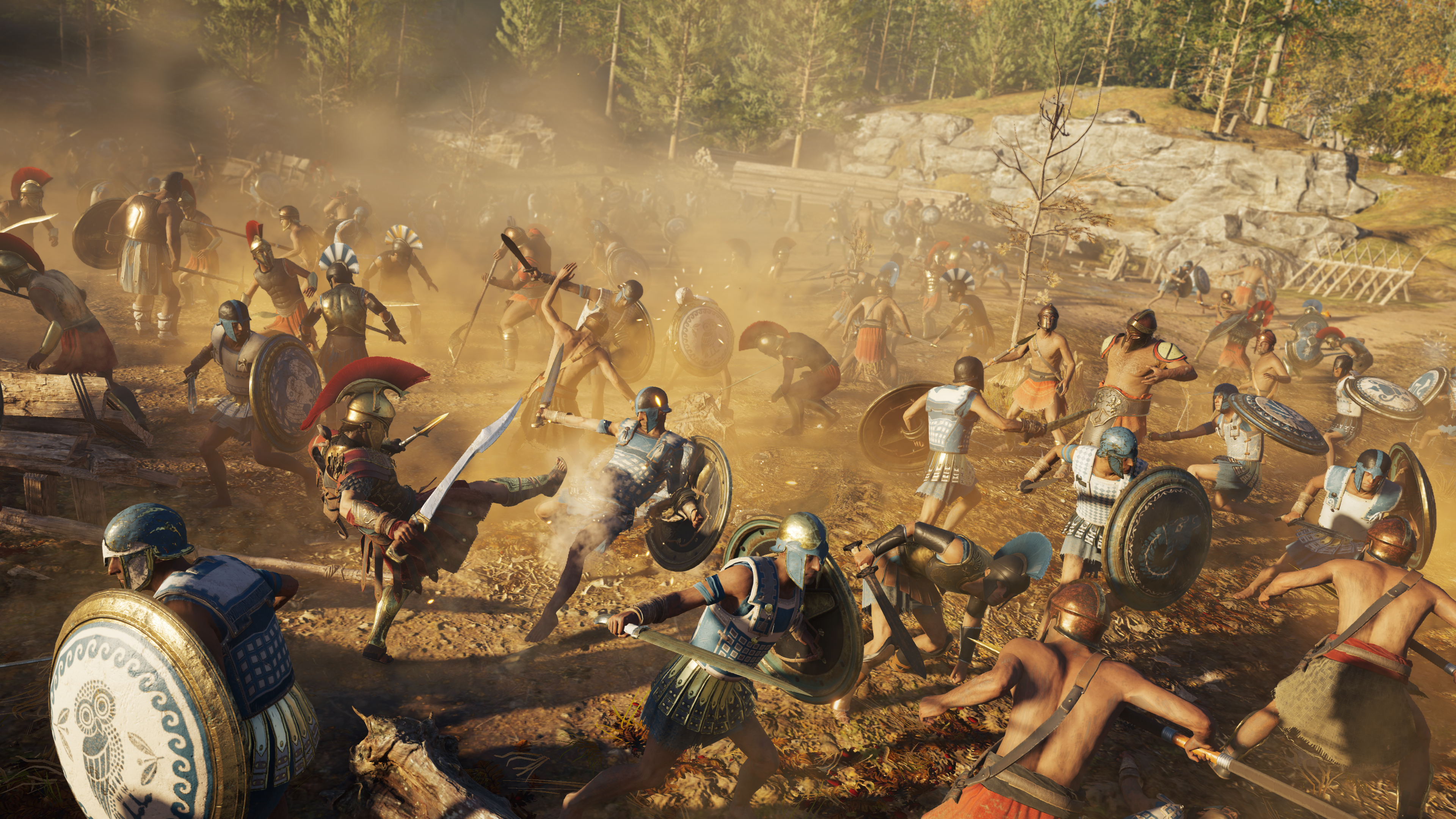
Choice and consequence
While gameplay hasn't changed much since last year's model, Assassin's Creed Odyssey gives us something new in its character interactions. Instead of simply watching passive cutscenes, you'll now have a chance to interact with the narrative as it unfolds. This interaction ranges from simple conversations to major plot points.
For example, when discussing Markos' vineyard with Phoibe, I could respond with either censure or good humor. This interaction helps shape Alexios' personality but doesn't affect the story much one way or the other. The game is rife with choices like this, and it's interesting to see what makes your character tick over time: money, compassion, pride or something else.
But later on, while trying to get a shopkeeper to pay me back, I had three options: rough him up, smash his wares or simply let the matter slide. I decided that it wasn't worth fighting over a few "drachmae," and the shopkeeper rewarded my diplomacy with a pretty decent sword instead. Had I resolved the matter differently, there could have been other consequences for my bad temper down the line.
A lot of the game plays out like this, from deciding how to resolve quests to establishing your relationships with other characters in the world. As our feud with the Cyclops escalated, I had a conversation with Markos about possible options to take against the crime boss. I encouraged Markos to take action, even though doing so would be dangerous, and this ultimately led to my confrontation with the villain. Urging caution or preaching a more aggressive stance could have changed how the overall quest played out.
Fans of branching narratives will also be pleased to note that you can romance certain NPCs this time around. While raiding an enemy fort on the island of Ithaca, I came across a huntress named Odessa, who claimed to be a descendant of Odysseus. I opted to be flirtatious rather than talk about her pilgrimage, and she responded positively. When I met her again, we picked up our amorous conversation where it had left off — but not before embarking on another mission to save her father's estate. I'm not sure exactly how these romantic exchanges will end up, or if they'll have a profound bearing on the overall story, but including them adds another nice touch in making Alexios or Kassandra uniquely yours.
Unfortunately, it's difficult to tell just how deep the narrative choices go at this point. The developers explained that many choices you make, even early on, will affect how the story plays out far down the road. Since I had only about 4 hours with the game, I didn't see any consequences that changed the story in a profound way. I assume these decisions will occur later on — or perhaps I already made an important choice and just didn't know it yet.
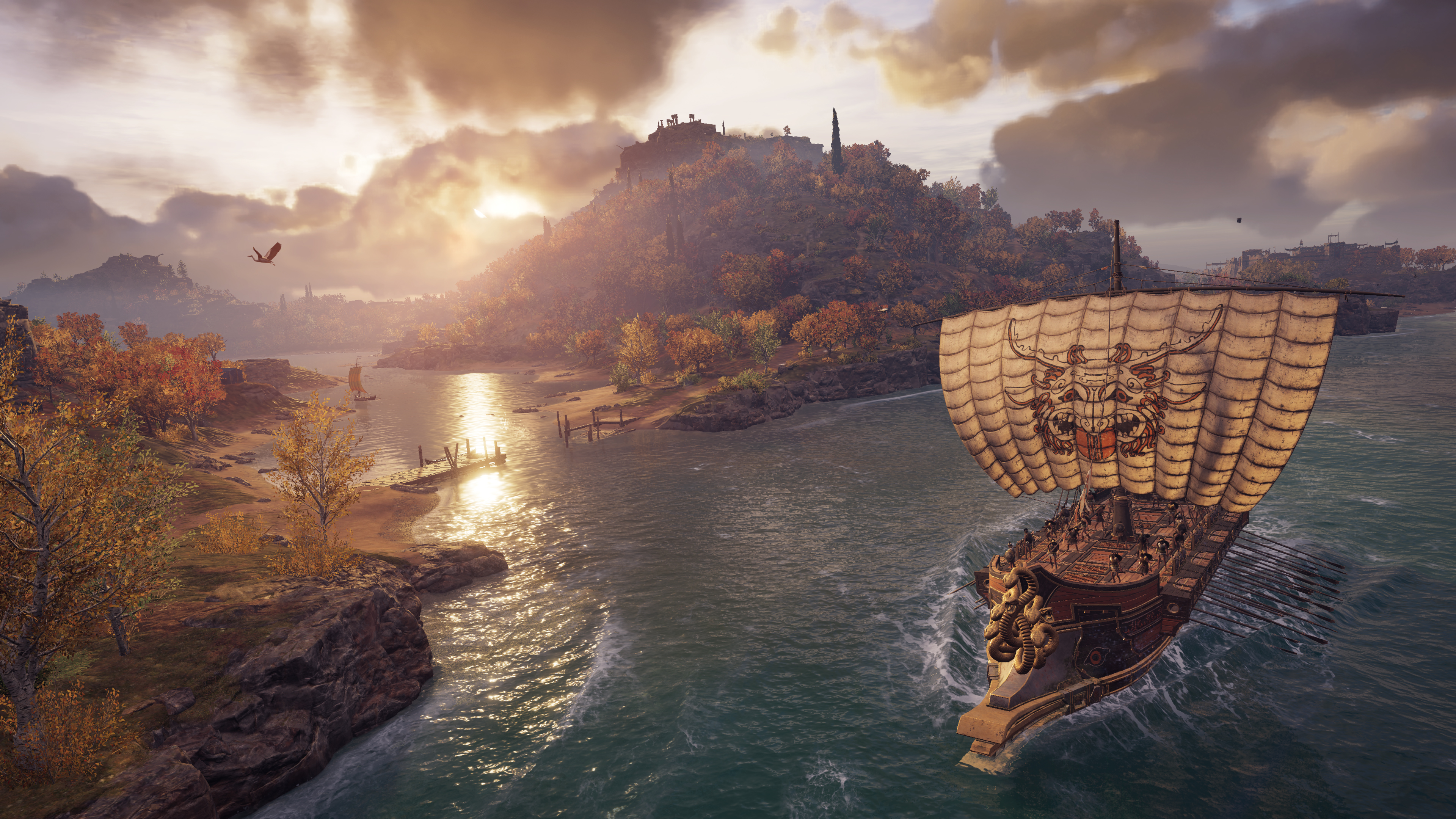
Opa!
After besting the Cyclops, I set sail for the city of Megara, where the title screen finally showed up. (This took me 2 hours; it could very well take longer, because I was purposely blasting through the main story.) Sailing across the Ionian Sea made it clear that Assassin's Creed Odyssey, like previous titles in the series, is very much about its setting. The amount of care that went into re-creating the gorgeous Greek archipelago is impressive, from the rocky coast of Ithaca, to the dark waters of the Ionian Sea, to the hilly woodlands of Megara.
En route to Megara, I got to take the game's ship combat for a spin. I learned at E3 that Assassin's Creed Odyssey won't focus on ship combat like Black Flag or Rogue did, but such conflict is unavoidable during wartime in an island chain. In order to reach Megara's shores, I had to sink an Athenian blockade. As in Assassin's Creed Origins, you can fire arrows at enemy ships or boost your speed by pushing your rowers for short bursts. This time around, you can also throw javelins if you get close enough, which helps streamline combat a bit. It's a fun diversion, although it's not the most robust naval warfare we've seen in the series.
When I reached Megara, the main story got going in earnest. The Peloponnesian War, in which Athens and Sparta fought for control of Greece, was just getting underway, and I was supposed to assassinate a general known as the Wolf of Sparta. To do this, I would need to ingratiate myself with the Spartan army, and that meant putting a damper on the Athenian presence in town.
If you played Assassin's Creed Syndicate, you'll find a lot of similarities in Odyssey's location-control mechanics. To liberate Megara, I had to kill a local Athenian warlord. But while I could storm his gates and challenge him face to face, doing so wasn't the best idea. The warlord had surrounded himself with high-level guards, walled himself off in a fortress and hired bounty hunters to come after me.
By undertaking a series of smaller missions first, I weakened his stronghold considerably. Picking off the bounty hunters one by one meant I'd have fewer opponents to face during the final encounter, while raiding more-distant outposts meant there'd be fewer foot soldiers.
I didn't have enough time in the demo to wrap up this quest, but it gave me a good sense of where the game was going: Arrive in a new location, take on some side quests, wear down the local warlord, fight a big battle and then move on to the next location, perhaps with some ship combat en route. It's not a bad progression.
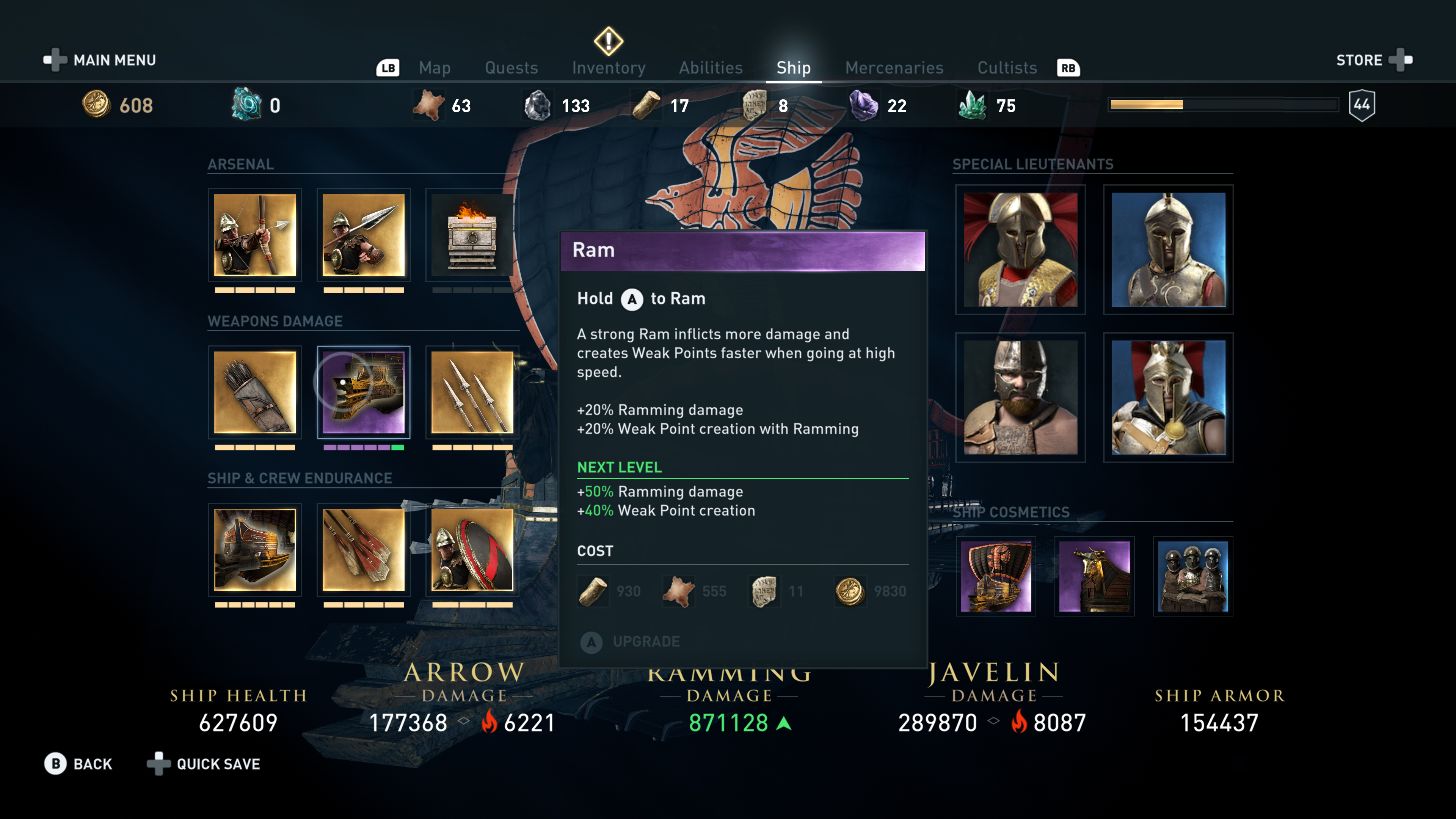
Everything is permitted
From its beautiful rendition of ancient Greece to its satisfying dialogue choices, Assassin's Creed Odyssey is a big, fun, customizable adventure — albeit one that plays it pretty safe. The control scheme and general game progression feel identical to those in Origins, while other features feel like they've been curbed from Black Flag and Syndicate. This isn't necessarily a bad thing, although gamers who were hoping that Odyssey would reinvent the whole formula will have to keep hoping.
The narrative choices are the biggest addition to the series in a while, though, and they could make your play-through considerably different than mine. I'm eager to see how these choices play out over the course of 20 or 30 hours, rather than just 5.
Assassin's Creed Odyssey will be out for PC, PS4 and Xbox One on Oct. 5, selling at $60 for the standard edition. The Greek takeout you order for your first marathon session will cost extra.

Marshall Honorof was a senior editor for Tom's Guide, overseeing the site's coverage of gaming hardware and software. He comes from a science writing background, having studied paleomammalogy, biological anthropology, and the history of science and technology. After hours, you can find him practicing taekwondo or doing deep dives on classic sci-fi.
 Club Benefits
Club Benefits





